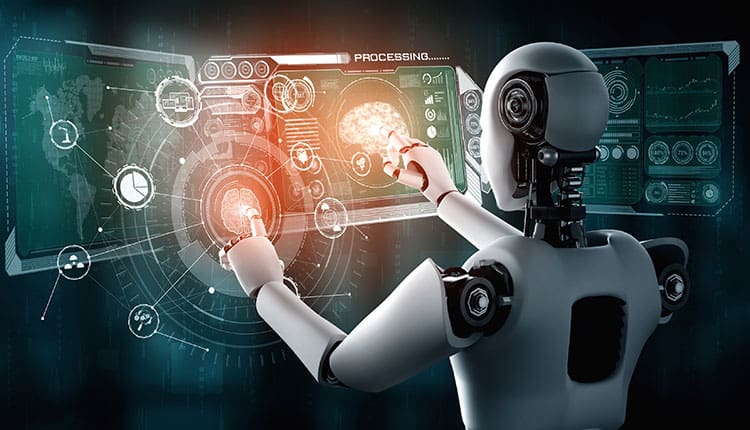The world of manufacturing is undergoing a remarkable transformation, driven by advancements in technology. At the forefront of this revolution is the integration of AI in continuous manufacturing. This integration is not only changing how products are made but also significantly enhancing efficiency, quality, and adaptability in the manufacturing sector. As we delve into the intricacies of AI in continuous manufacturing, it’s essential to understand its profound impact and potential.
In the realm of continuous manufacturing, where processes are ongoing and uninterrupted, the role of AI becomes even more crucial. Its ability to analyze vast amounts of data in real-time, predict potential issues, and optimize production makes it an invaluable asset for manufacturers aiming to stay competitive in an ever-evolving market.

Understanding Continuous Manufacturing
Continuous manufacturing refers to the production methodology where materials are continuously in motion, undergoing chemical reactions or mechanical processing. Unlike batch manufacturing, where production occurs in discrete stages, continuous manufacturing is a seamless process that enhances efficiency and reduces downtime.
The Role of AI in Continuous Manufacturing
The integration of AI in this process involves several key components that make it indispensable. Here’s how AI is reshaping continuous manufacturing:
- Predictive Analytics: AI algorithms analyze historical and real-time data to predict equipment failures and maintenance needs, minimizing downtime.
- Quality Control: AI systems ensure consistent product quality by monitoring parameters and adjusting processes on-the-fly. For more details, you can refer to manufacturing quality.
- Process Optimization: By identifying inefficiencies in the manufacturing process, AI helps in optimizing resource utilization and reducing waste.
- Supply Chain Management: AI enhances supply chain efficiency by predicting demand fluctuations and optimizing inventory levels.
Benefits of AI in Continuous Manufacturing
The adoption of AI in continuous manufacturing offers numerous benefits that are revolutionizing the industry. These include:
Enhanced Efficiency
AI-driven automation significantly enhances operational efficiency by reducing manual intervention and ensuring optimal production rates. This leads to cost savings and faster time-to-market.
Improved Product Quality
With AI’s ability to monitor and control production parameters, manufacturers can ensure consistent product quality, reducing defects and rework. This is especially evident in industries like welding quality, where precision is crucial.
Real-Time Decision Making
AI systems provide real-time insights, enabling manufacturers to make informed decisions quickly. This agility is crucial in today’s fast-paced manufacturing environment.
Challenges in Implementing AI in Continuous Manufacturing
While the benefits are substantial, implementing AI in continuous manufacturing comes with its set of challenges:
Data Integration
Integrating AI systems with existing manufacturing infrastructure can be complex, requiring seamless data integration across various platforms.
Skill Development
The shift towards AI-driven manufacturing necessitates upskilling the workforce to manage and operate advanced AI systems effectively.
Future Prospects of AI in Continuous Manufacturing
The future of AI in continuous manufacturing looks promising, with advancements in machine learning and data analytics paving the way for even more sophisticated applications. As AI technology evolves, its role in manufacturing is expected to expand, driving further innovation and efficiency.
For further insights into the future of AI in manufacturing, consider exploring resources like the AI-driven quality control blog.
Conclusion
In conclusion, AI in continuous manufacturing is a game-changer for the industry. Its ability to optimize processes, enhance product quality, and improve efficiency is driving a new era of innovation in manufacturing. As technology continues to advance, embracing AI will be crucial for manufacturers aiming to remain competitive and sustainable in the long run.

FAQ Section
What is continuous manufacturing?
Continuous manufacturing is a production method where materials are continuously processed, enhancing efficiency and reducing downtime.
How does AI benefit continuous manufacturing?
AI enhances continuous manufacturing by optimizing processes, ensuring consistent product quality, and enabling real-time decision-making.
What are the challenges of implementing AI in manufacturing?
Challenges include data integration, skill development for the workforce, and adapting existing infrastructure to new technologies.
This article contains affiliate links. We may earn a commission at no extra cost to you.

